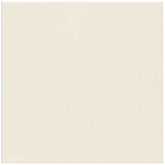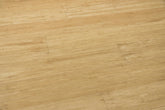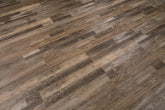A wet or damp basement can quickly turn your home’s bonus space into a burden.
If you’ve ever wondered how to waterproof an old basement floor, you’re not alone. With the right tools, techniques, and materials, you can transform that musty, cold room into a dry, usable area, without digging up your foundation.
This guide is your go-to for learning how to waterproof a basement floor effectively, even if you’ve never attempted a waterproofing project before. Whether you're dealing with water coming through the floor, seeping through cracks, or just trying to prevent future moisture problems, this article covers it all.
From sealing the concrete slab to installing interlocking waterproof basement floor tiles, we’ve compiled the top techniques to protect your home and help keep your basement dry for years to come.
Let’s explore the best waterproofing methods for unfinished basement floors and discover how Genix Flooring can simplify your job and enhance its style.
Why Should You Waterproof Your Basement Floor?
If you want to prevent water damage, stop mold growth, and lower your chance of structural problems, you must waterproof your basement floor.
Over time, water seeping into the basement through the slab, walls, and floor, or even through cracks in concrete, can erode the foundation of your house.
Furthermore, a wet basement will destroy the drywall, furniture, and insulation if you intend on finishing the basement. By keeping water from contacting the concrete floor, a well-executed waterproofing project can transform a damp basement into a dry, livable space.
What Causes Water to Enter an Old Basement?
It takes a lot for water to seep into your concrete basement. The effective factors consist of:
• Hydrostatic pressure: Water is forced through cracks in the foundation wall and slab when the high water table outside applies pressure.
• Poor drainage system: Water collects close to the exterior walls and seeps into the basement walls and floor if your gutters and downspouts are unable to divert it away from the house.
• Bad landscaping or Sloping: This directs water toward the basement rather than away from the house, and can cause surface water and standing water.
Selecting the best waterproofing methods can be made easier by knowing the underlying cause.
How to Prepare the Concrete Floor Before Waterproofing
You must clean the floor and fix any damage before applying any products.
• Clear the Space: Clear the basement floor of all boxes, furniture, and debris.
• Clean the Concrete Surface: To get rid of dirt, dust, and efflorescence, use a concrete cleaner.
• Fix Concrete Cracks: To close gaps and stop water from leaking through cracks, use hydraulic cement or a high-quality sealer.
This stage guarantees that the waterproof coating will adhere correctly and persist for a long time.
Can You Waterproof a Basement Floor Without Digging?
Indeed! Interior solutions are your best option if you want to waterproof your basement floor without excavating. Here's how:
Use concrete sealers, waterproofing paint, or epoxy to create a barrier on the surface of the concrete. To control water seepage, install interior basement drainage systems such as a drain tile system or a French drain.
Think about sump pumps, which gather drain water and release gallons of water outdoors as the water rises. This is a smart way to waterproof a basement leak without disturbing the structure.
Which Coatings and Sealants Are Best for Basement Floors?
Selecting the appropriate sealer or an epoxy coating is essential. Popular choices are as follows:
• Concrete sealer: Reduces permeability by penetrating the concrete's pores.
• Epoxy coating: Gives the concrete slab a long-lasting, waterproof covering.
• Tanking: When water is entering from several locations, a slurry mixture is applied to the walls and floors.
These waterproofing products are resistant to rot, mold, and mildew in addition to keeping water away from the basement.
How Does a Sump Pump Help with Basement Waterproofing?
A sump pump is essential if water intrusion during periods of heavy rainfall is one of your basement water problems.
• Water seeping through cracks is collected and forced out via a drainage system.
• Water pooling on your concrete floor can be prevented with the help of an appropriate sump pump system.
• It's the best option for professional waterproofing when combined with a drain tile system.
This can be a lifesaver for severe water problems.
What’s the Role of Exterior Waterproofing in Basement Health?
Most of the time, interior waterproofing by itself isn't always sufficient. By tackling issues from the outside, exterior waterproofing offers a promising defense.
To divert water away from the house, barriers must be put in place and the foundation wall sealed.
Additionally, a new drainage system, gutter extensions, and soil grading around the perimeter of the basement floor may be part of an exterior basement waterproofing project. Even though it requires more work, it works well for long-term water damage prevention.
Should You Install Waterproof Basement Floor Tiles?
Of course! Basement floor tiles provide instant and stylish waterproofing. Interlocking tiles from Genix Flooring that:
• To stop water from coming through seams, snap them together and reduce water pressure so it doesn't get into your basement.
• Tiles are composed of waterproof materials such as rubber and vinyl, which are both waterproofing solutions.
• They are easy to clean and resilient to high water conditions.
They are perfect for creating a dry basement that also looks contemporary and welcoming, as stated in Genix's flooring guide. Because of this, they are a wise substitute for laminate, hardwood, or carpet in any basement that leaks.
What Maintenance Is Needed to Keep a Basement Dry?
It takes some care to keep the basement waterproofing methods working. This is how:
• Check your basement every season to look for new cracks or signs of moisture.
• Before storms, make sure your sump pump is working.
• Clear the downspouts and gutters on a regular basis to divert water and prevent a leaky basement.
• Spills should be cleaned up right away to prevent mold growth.
• Watch out for water seeping into low areas.
By performing these easy checks, excess water gets eliminated, and serious issues can be avoided later.
Is Genix Flooring the Right Choice for Waterproof Basement Flooring?
If you're looking for real-world waterproofing, durability, and design, Genix is the way to go!
Genix Flooring specializes in waterproofing solutions that turn your unfinished basement into a hygienic, dry, and fashionable addition to your house. Their interlocking basement floor tiles look fantastic while being mold-resistant and leak-proof. They are also simple to install without expert assistance. Genix makes the task easier and more attractive.
Whether you're trying to waterproof an old basement floor or are dealing with water seeping in.
Conclusion
When water is coming into your basement, it's not just an inconvenience; it’s a sign that you need to take action before water issues escalate.
The good news? There are proven methods to stop the water and reclaim your space.
Whether your basement floor is made of poured concrete or an old slab showing wear, the right steps can dramatically prevent water from coming in.
Start by sealing the pores of the concrete with a quality waterproof concrete coating to block moisture at the surface. Don’t overlook the importance of proper drainage, which can help remove excess water and stop water from entering through low points.
Even if you think water could never reach your basement, rain and rising pressure can allow water to slowly start entering your basement.
To truly defend your home and add style in one move, invest in Genix Flooring’s premium basement floor tiles waterproof system.
These tiles not only look fantastic. They also work hard to stop the water before it causes damage. With their tight interlocking system and waterproof structure, you gain long-term protection where it matters most.
So, if you’re serious about safeguarding your basement and making it livable, don’t wait until water from entering becomes a crisis.
Choose smart solutions. Choose lasting results. Choose Genix Flooring.









